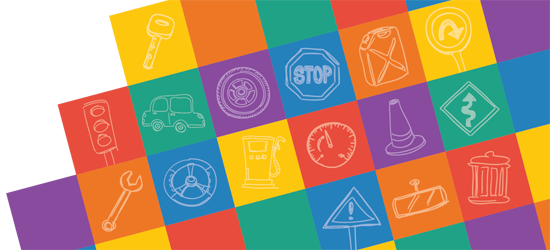Buying a used car checklist
If you've never done it before, the work involved in buying a car can seem extraordinarily confusing. I know, because I've done it - and my brain isn't great at life admin. So, to help you on your way, here's a step-by-step list of everything you need to do before you can pootle off into the sunset.-
Check the insurance and tax
Before you start getting excited, look up how much the car will cost to tax and run it through a few quote forms. This will give you an idea of how much you'd be looking at for your cover. You know we do insurance, right? Things to note for getting your quotes:
- Engine size - aim for a 1.2 litre or under
- Model - some models will cost more than others so make sure you know
- Value - putting in what the seller is asking for is OK for now
- Number plate - some quote forms will fill in a lot of information for you if you have this
Check the logistics
- If it's your first car, how are you going to go to see it and then bring it home if you do go through with buying? Make sure that wherever the car lives, you can definitely transport yourself and it.
If you're still learning to drive, find out how to buy a car when you only have a provisional licence.
Contact the seller
- Missing information - things like number of previous owners and whether it has a full service history
- Whether the car has ever had any body work done - basically: has it crashed and therefore been weakened?
- If it has all its documents - V5C (logbook), owner's handbook, receipts for tyres and work
- Whether the car has any modifications - things like upgraded stereo systems can affect your insurance
- (If that all goes well) When you can see it and where it'll be
Go check out the car
Take a buddy / parent if you think they'll be tougher than you (sometimes love can blind us to things like faulty windscreen wipers...). The important thing is not to rush into buying - there will be other cars!If you're pretty sure you want this make and model, take the opportunity to try everything out and make sure it's comfortable. Even if you don't buy THIS car, you'll know now exactly what you're after and have an idea of what it should cost.
Think about it
Every seller is going to tell you they've got other people coming to see it and they need a quick sell. Ignore them. You should never rush into uying a car because that's how you end up with a very expensive lawn ornament.Run some more quotes (prices can change by the day!), write a pros and cons list and tot up your monies.
If it's looking good, send the owner a deposit to keep the car for you.Buy the car
If you're sure, arrange a return trip to buy the car and take it home.- Cash - if it's a large amount (over £500), check with your bank the day before so you KNOW they'll have enough to give you
- Phone - you'll need to buy your insurance and tax before you drive the car away
- Insurance - set up the quote you're going for beforehand so all you need to do is buy it
- Tax - do the same with the GOV.UK vehicle tax wizard (remember vehicle tax doesn't transfer between owners)
- A receipt - worth getting just in case there's something seriously wrong with the car
- The owner's manual - you'll need it to get to know your car
- The V5C - you wouldn't buy a car without a logbook, would you?
- All the paperwork - receipts for work done and service records
- All the keys - hopefully there'll be two sets
Take a look at how car insurance is worked out so you know what to avoid for the best insurance price.
What to ask:
Go in with a healthy dose of scepticism. The seller wants to sell; if the information is missing, it's likely your suspicions are correct.
Use our list of everything you need to check when you go to see a used car.
Things you'll need to go with:
Things you'll need to leave with:
You'll also need to fill in the green 'new owner' (V5C2) part of the car's logbook, which the seller will send off the the DVSA.
 Updated: 08/11/2018
Updated: 08/11/2018












